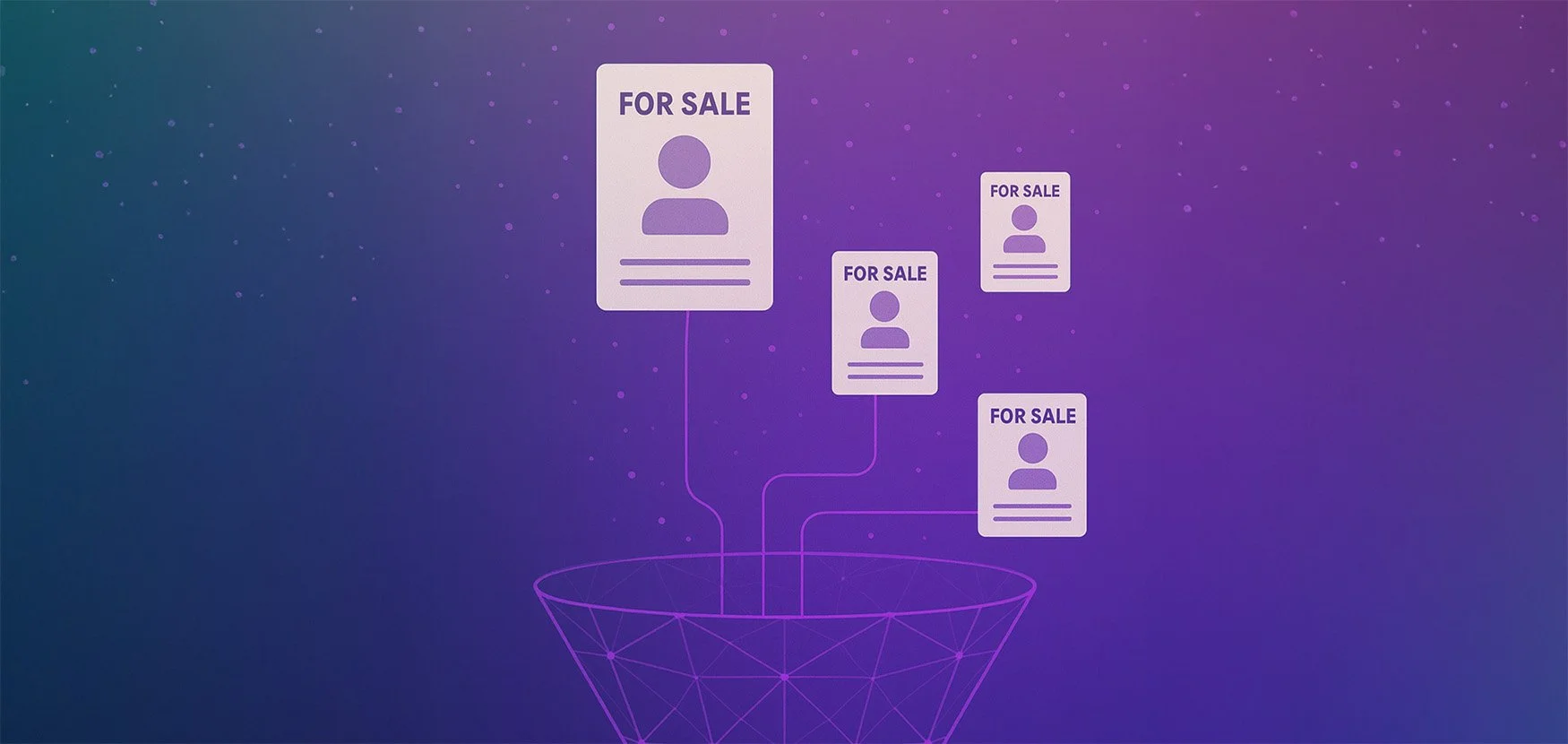Why Your Privacy Protection Company May Be Selling You Out
The Hidden Privacy Paradox: Why Your Privacy Protection Company May Be Selling You Out
TL;DR
When you hire a company to remove your personal information from data brokers, you expect protection. But some privacy protection companies may be quietly sharing your data with marketing affiliates—operating like the data brokers they claim to fight. Before you trust a provider, ask: Who truly controls your personal data?
What’s Happening
The Expectation of Protection
You’re paying for protection expecting to reduce your exposure, prevent identity theft, and shrink your digital footprint. But for millions of Americans, privacy protection may come with a hidden cost.
The Reality of Data Sharing
For users of Norton, LifeLock, Avast, or MoneyLion all under Gen Digital your privacy data may be shared within the company’s corporate group and used for financial marketing. This isn’t a theory. It’s written into their privacy policies.
Why It Matters
What Are Data Brokers?
Data brokers are companies that collect, aggregate, and sell or share personal data from public and private sources. They build detailed digital profiles that include your identity, online activity, financial behavior, and more.
This data can be used to:
Fuel identity theft
Target you with predatory marketing
Facilitate surveillance
When privacy protection companies behave like data brokers, your trust is compromised.
The Gen Digital Acquisition of MoneyLion
On April 17, 2025, Gen Digital (formerly NortonLifeLock) acquired MoneyLion, a fintech company offering:
Credit-building tools
Personal finance services
Access to over 400 financial product providers
This links cybersecurity and identity services (like Norton and LifeLock) with financial marketplaces. Behind the scenes, it creates a powerful system of shared data fuel for targeted marketing.
What the Privacy Policies Say
MoneyLion Privacy Policy
As of January 15, 2025, MoneyLion’s policy allows sharing personal data with related companies for marketing and advertising purposes, including:
Name, address, Social Security number
Account balances and spending activity
Credit scores and credit histories
Location and geolocation data
Profile inferences for targeting
It states clearly: “We may use personal information to serve you with advertising for marketplace partner products or services, or the products or services of our corporate parent entities and their wholly-owned subsidiaries and affiliates.”
Gen Digital Privacy Policy
Gen Digital’s Global Privacy Statement (March 2025) confirms data sharing with corporate affiliates. In the past 12 months, they disclosed:
User data
Product usage
Website behavior
Third-party data
How It Affects You
Your Data Could Fuel Marketing Not Just Protection
Personal data collected through LifeLock, Norton, or Avast could end up informing financial marketing decisions by MoneyLion. You may be:
Targeted with credit products during identity theft incidents
Offered loans after malware detection
Pushed into subprime products following credit score drops
These outcomes are enabled—and permitted—by current privacy policy terms.
The Legal Loophole: GLBA Exemption
What Is GLBA?
The Gramm-Leach-Bliley Act (GLBA) governs financial institutions. If a company is GLBA-regulated, they can claim exemption from certain state privacy laws like California's data broker law.
How They Avoid Accountability
MoneyLion defines itself as a GLBA-regulated financial institution. Its privacy policy states:
“We may be exempt from certain state privacy laws.”
This allows:
Sharing of personal data without registering as a data broker
Avoiding transparency laws
Bypassing opt-out or deletion obligations
This legal structure gives companies like Gen Digital a loophole to act like data brokers—without being treated as such.
The Perfect Storm: All Your Data Under One Roof
What Gen Digital Collects
From Norton & Avast:
Browsing history and URLs
Malware incidents
Device identifiers
Network traffic and threats
From LifeLock:
Social Security numbers
Credit reports
Bank account data
Dark web alerts
Fraud monitoring
From MoneyLion:
Income data
Credit applications
Financial product searches
Spending patterns
The Risk
When all this data is legally shared among affiliates, it forms a single point of failure. A data breach could expose everything. Even without a breach, this data can be used to target you at your most vulnerable.
Trust Betrayed: When Privacy Companies Act Like Data Brokers
Broken Promises
These brands promote themselves as protectors:
LifeLock claims to shield you after data exposure
Norton offers guides to fight data brokers
Yet, behind the scenes, the same data is legally shared within the Gen Digital network for financial marketing. This is a clear violation of consumer trust.
Secondary Use of Data
This is what privacy experts call secondary use data collected for one reason (protection) being reused for another (marketing). Consumers are rarely aware, and the privacy policies don’t highlight it plainly.
Why Most Consumers Don’t Know
Information Asymmetry
Consumers face what experts call information asymmetry:
Few read 30-page privacy policies
Terms like “corporate affiliate” or “GLBA exemption” aren’t clear
Disclosure is technically present, but not understood
As a result, consumers think their data is safe when it may be exposed in new ways.
What Can Be Done
What You Should Demand
1. No Corporate Data Sharing
Ask your provider:
“Do you share my data with corporate affiliates or subsidiaries?”
If they can’t answer clearly or say “yes,” that’s a red flag.
2. No Financial Product Marketing
Avoid privacy services tied to:
Loan marketplaces
Credit tools
Financial referrals
These connections create incentives to monetize your vulnerability.
3. No GLBA-Based Loopholes
Reject providers that use financial-institution status to sidestep state privacy laws. True privacy companies shouldn’t need exemptions to operate ethically.
4. Transparent Business Models
Privacy companies should earn revenue only from you, not from advertisers or financial partners.
5. Independent Verification
Look into ownership. Are they part of a larger marketing, analytics, or financial group? Independence is critical.
Where mePrism Helps
True Independence
At mePrism Privacy, we believe your data should be protected not monetized.
We are fully independent
We do not share data with affiliates
We do not operate loan marketplaces or financial services
We do not use data for secondary marketing
What We Do
We use your data only to submit opt-out requests to data brokers
We do not retain, profile, or resell your data
We do not exploit regulatory loopholes
We do not participate in affiliate programs
Our Only Incentive: Your Privacy
Our business only succeeds when your data disappears from data broker databases—not when it gets marketed to.
Final Thought: Choose Real Privacy, Not a Marketing Engine
Ask your privacy protection provider one question:
“Do you have any reason to use my data beyond removing it from data brokers?”
If the answer isn’t a clear “no”, look elsewhere.
At mePrism, there’s no conflict of interest. No hidden affiliate. No financial upsell. Just clean, simple, verified privacy protection.
Ready to try mePrism yourself?
If you're a company protecting at-risk employees, or an individual concerned about your digital footprint, start your privacy removal today at mePrism.com.
Because your data shouldn’t be a roadmap for violence.
Explore more from Our Team
Browse more posts written by our team to help you stay in control.
Be Part of the Conversation





